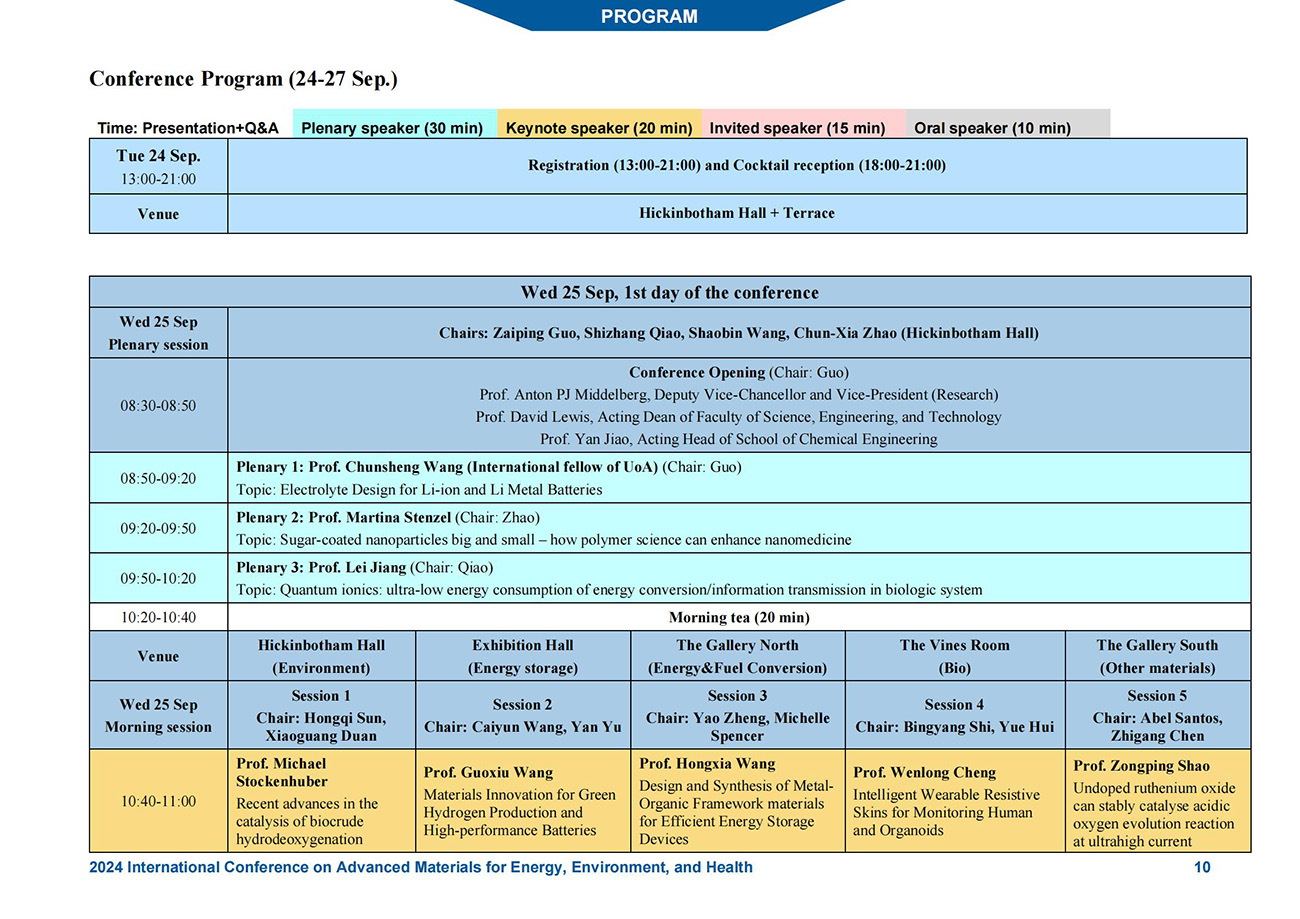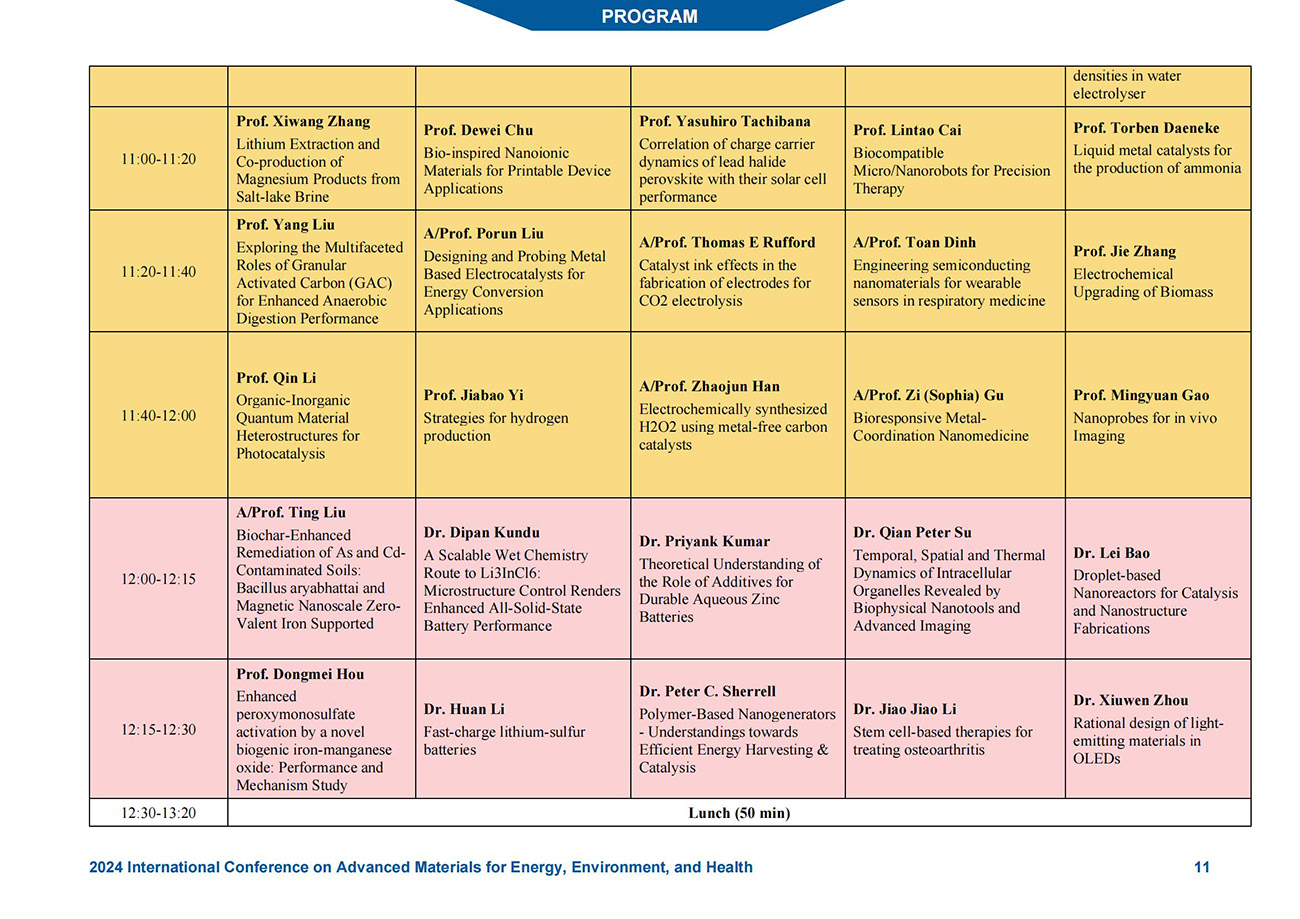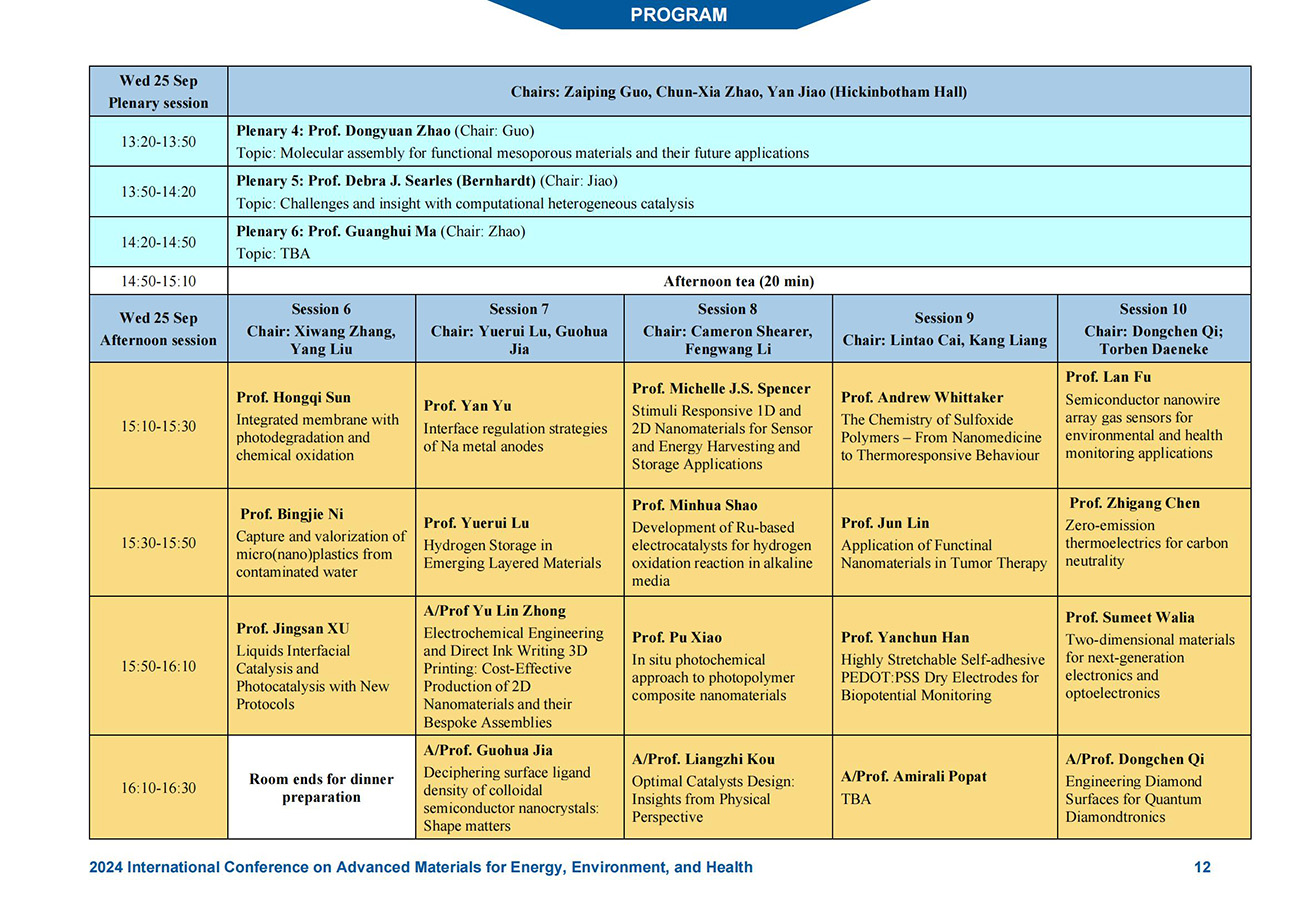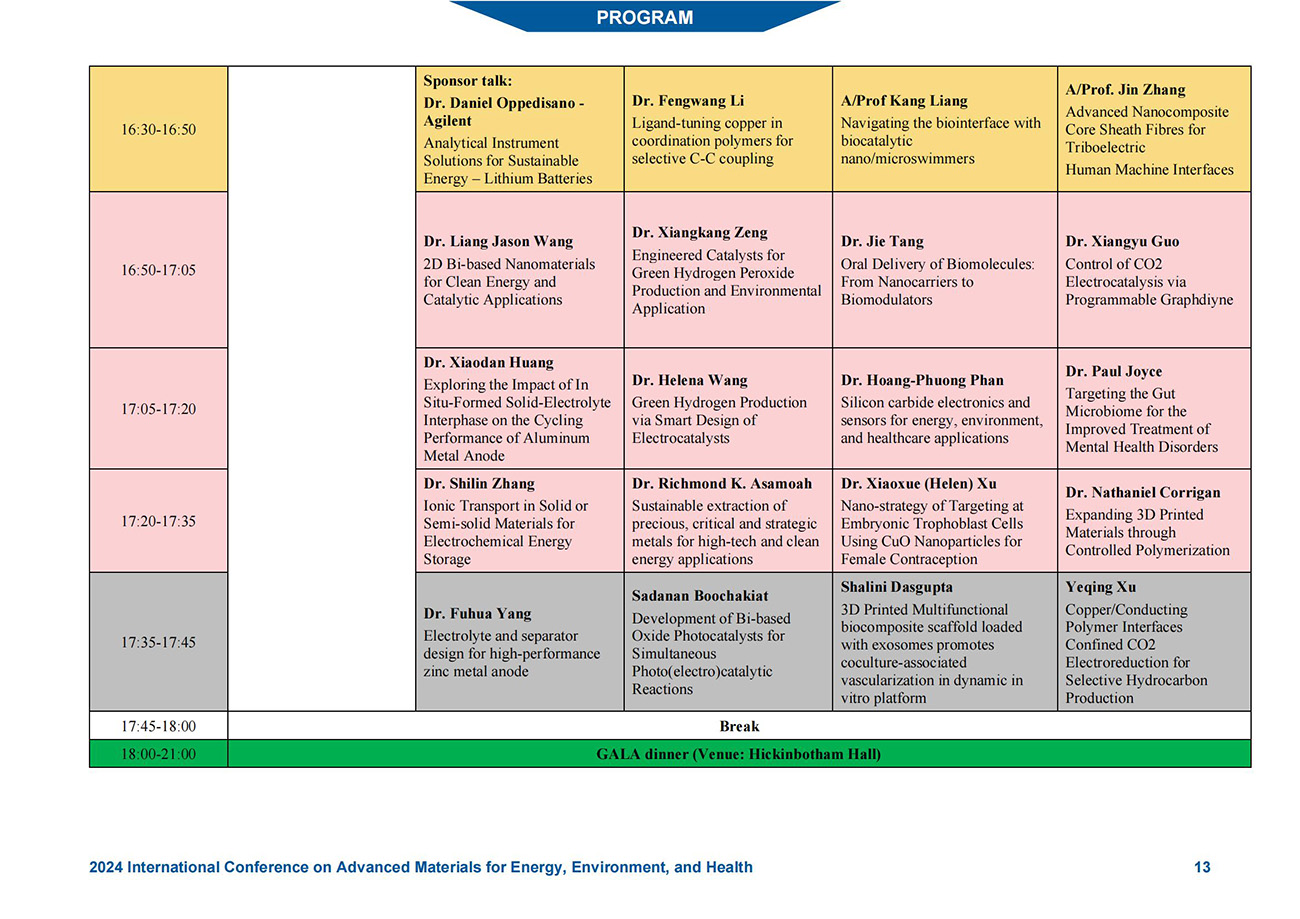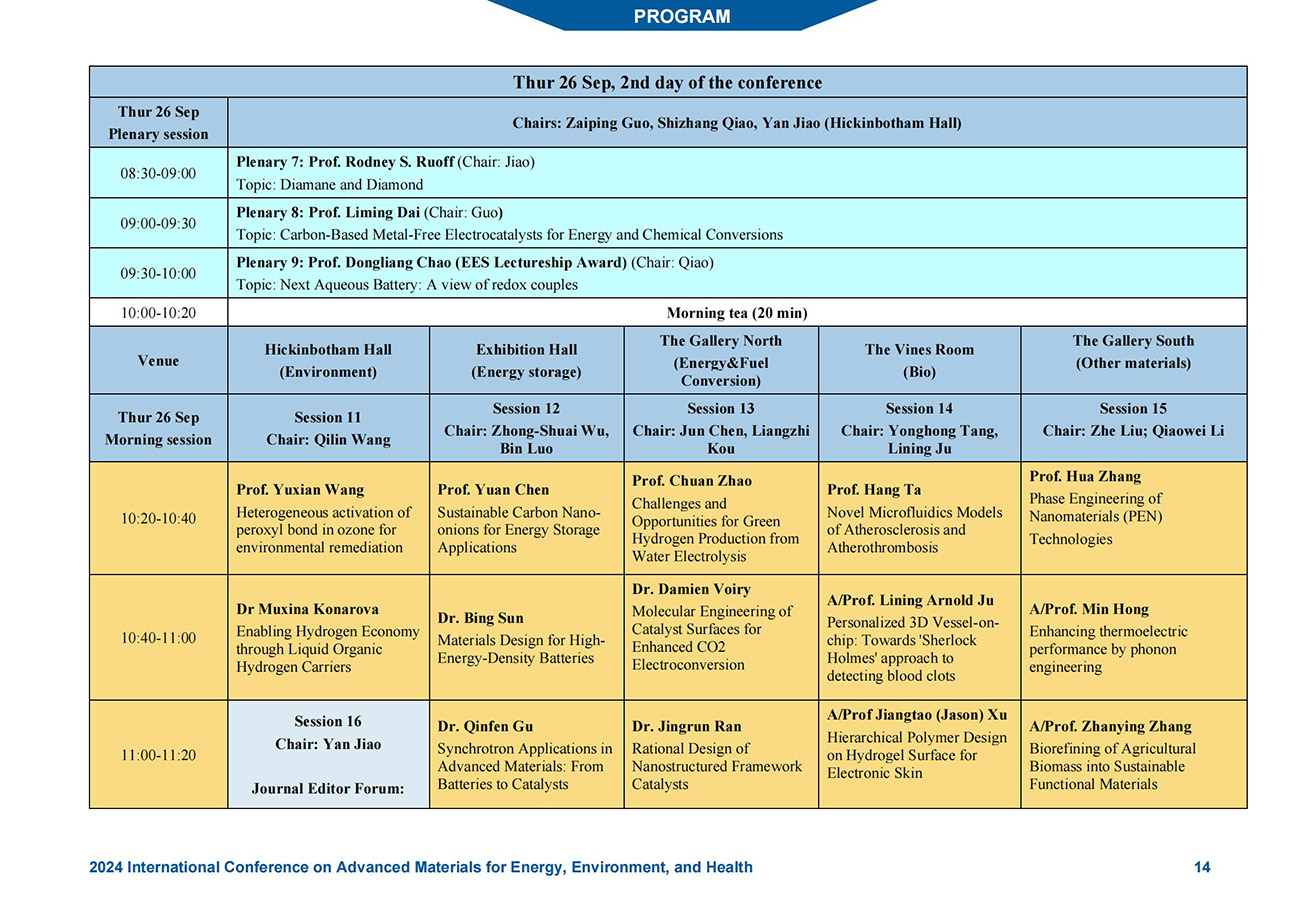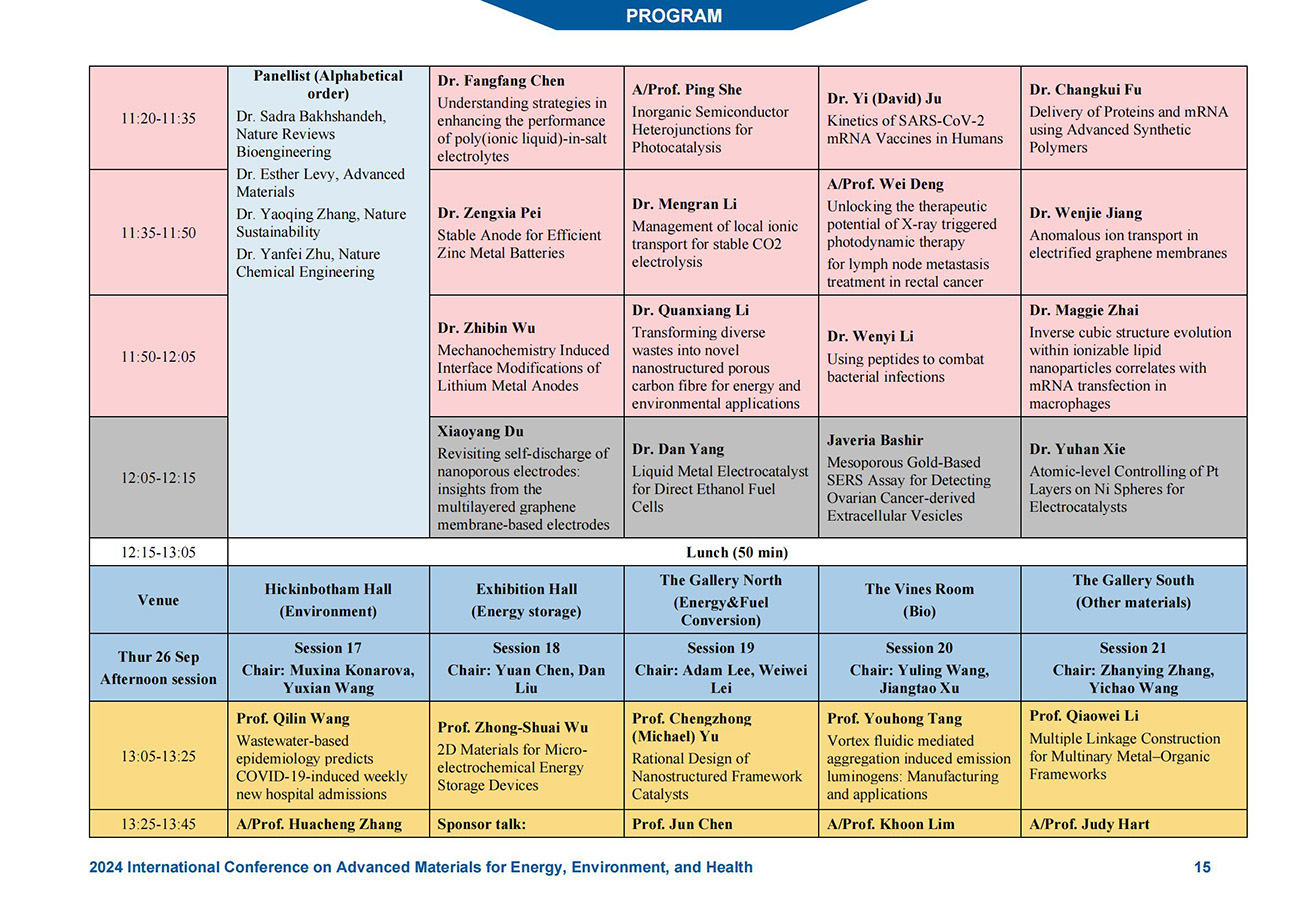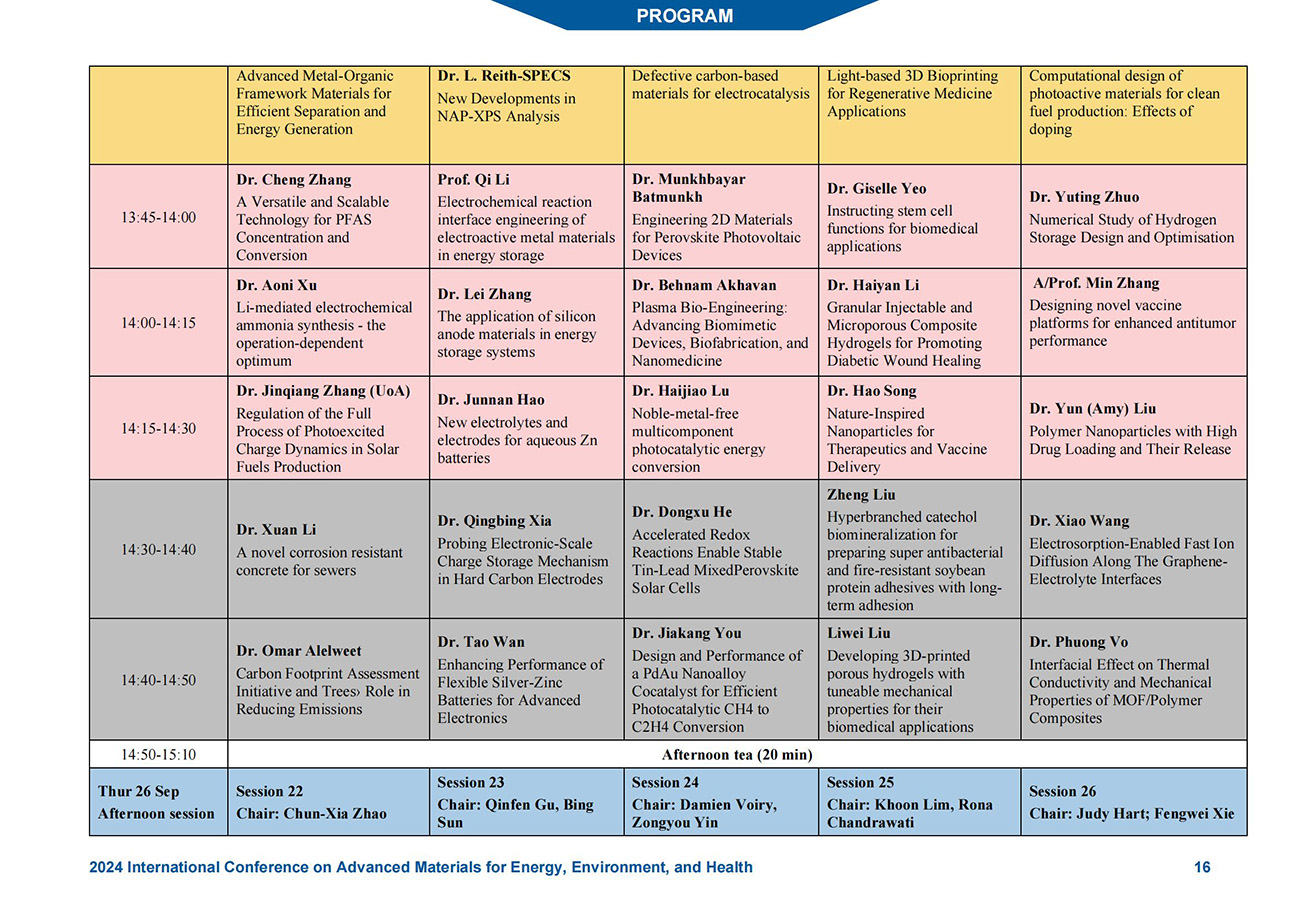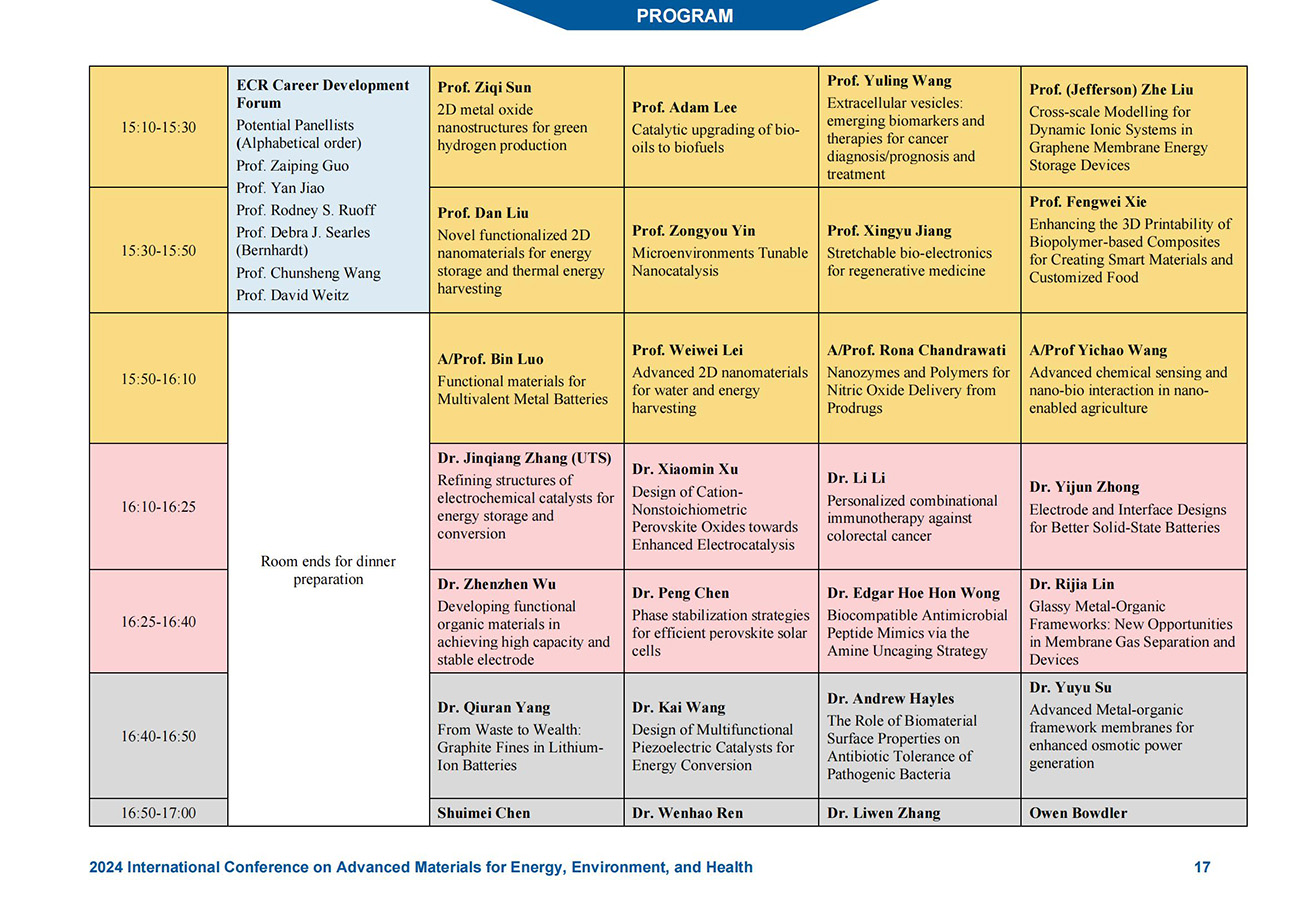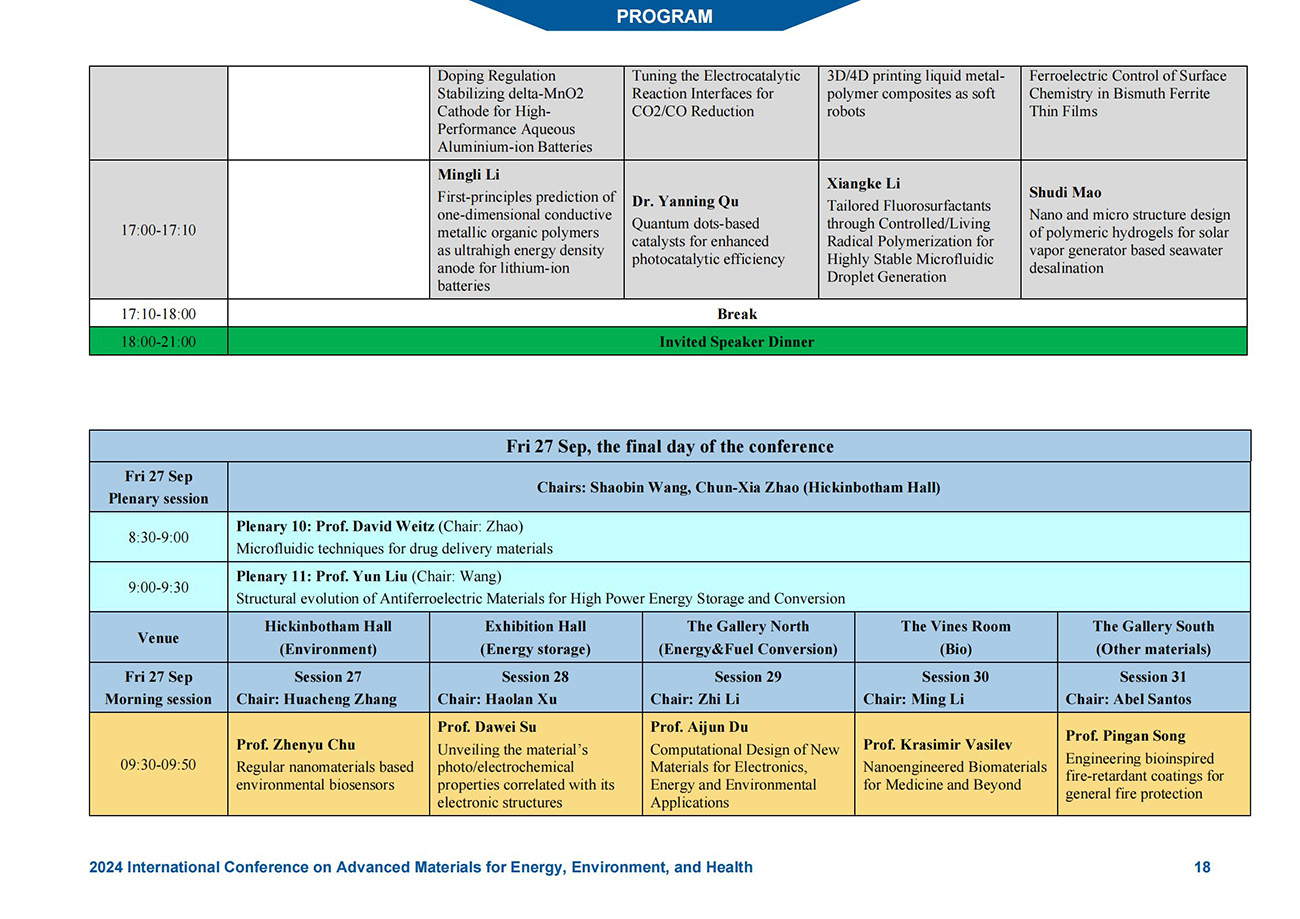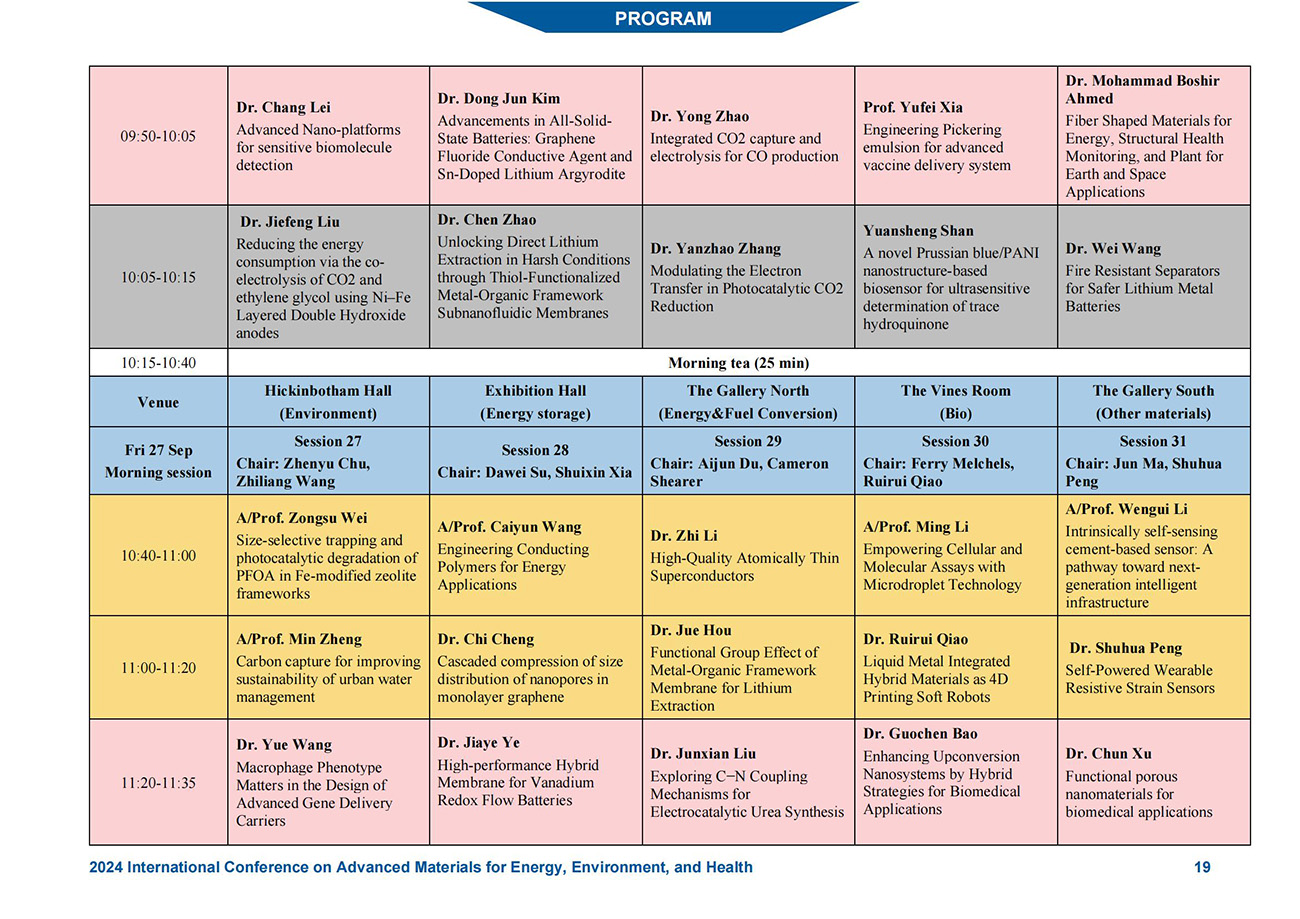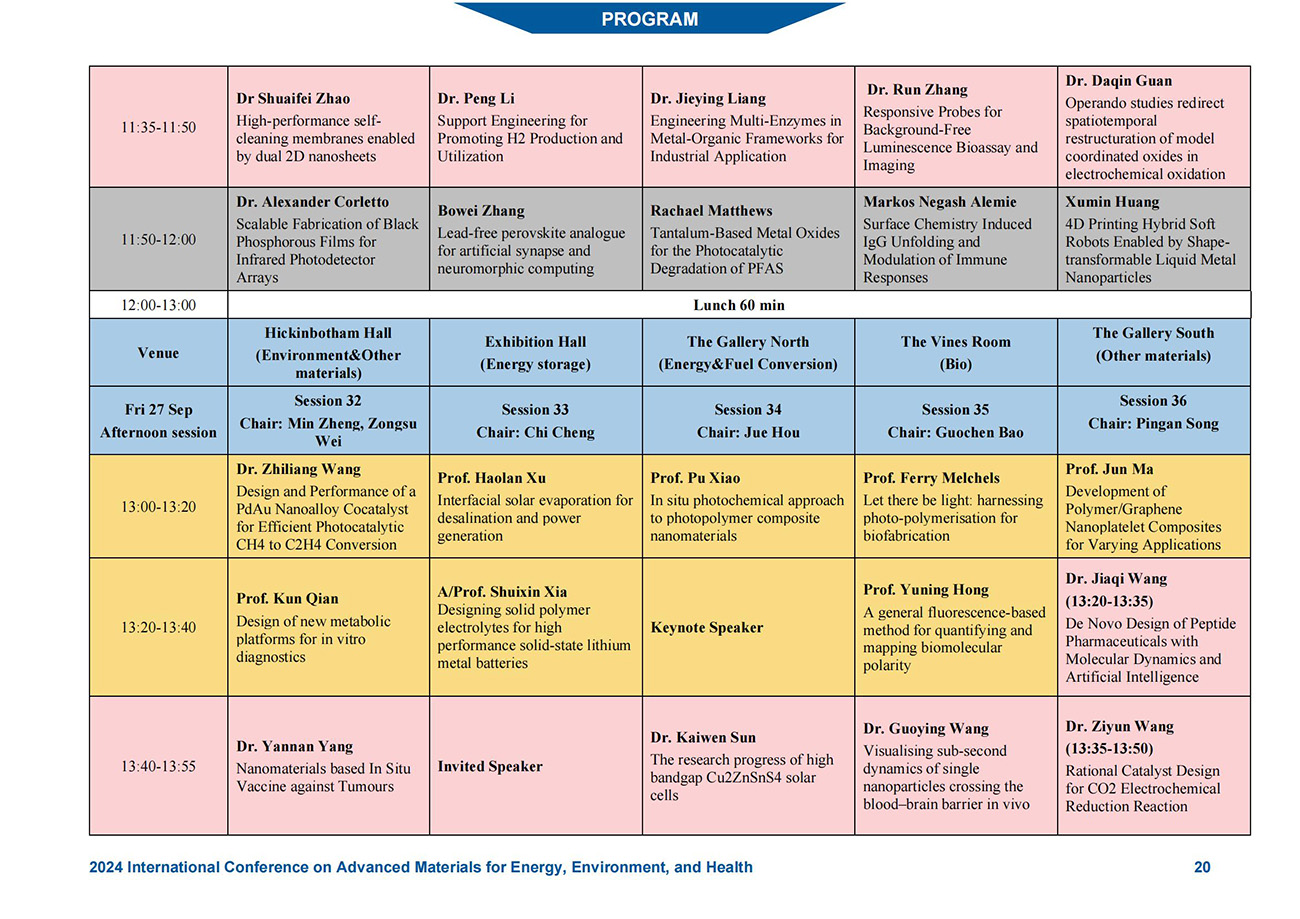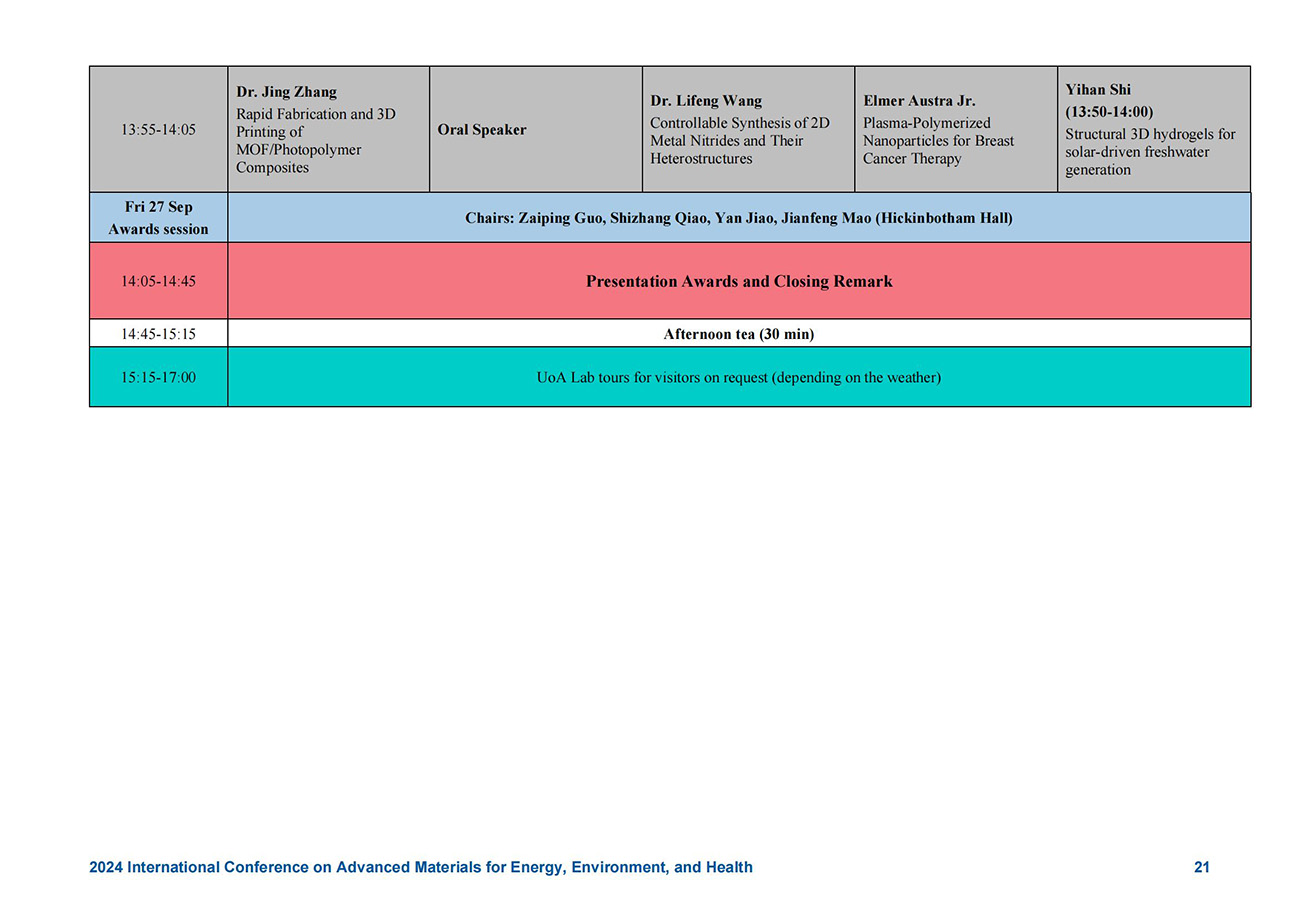| International Conference on Nano Bio Intelligence |
|
| 2024 International Conference on Nano Bio Intelligence |
| 2023 International Conference on Nano Bio Intelligence |
| 2022 Australian Crossdisciplinarity Webinar |
|
Prof. Jenney Gamble, The University of Sydney
Prof. Zaiping Guo, The University of Adelaide
Prof. Justin Gooding, The University of New South Wales
Prof. Dmitri Golberg, The Queensland University of Technology
Prof. Liming Dai, The University of New South Wales
Prof. Martina Stenzel, The University of New South Wales
|
 |
| Prof. Chun-Xia Zhao, The University of Adelaide |
|
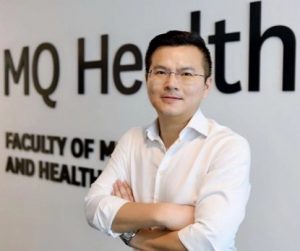 |
| A/Prof. Bingyang Shi, Macquarie University |
|
|
Australian crossdisciplinarity Webinar about Grand challenge forum will be hold on 24-25, January 2022. This Webinar will focus on Energy and Health, featuring two themes:
Theme 1: Materials and Energy
Smart Materials
Bioactive Materials
Advanced Materials
Carbon Energy
Green Energy
Polymer Chemistry
|
|
Theme 2: Biology and Health
Neurodegenerative diseases
Vascular Biology
Brain Cancer
Drug delivery
Diagnostics
Nanomedicine
|
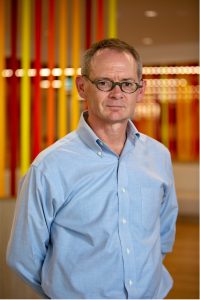 |
Prof. J. Justin Gooding, The Australian Centre for NanoMedicine, The University of New South Wales |
| Scientia Professor Justin Gooding is currently an National Health and Medical Research Council Investgator Awardee a Fellow of the Australian Academy of Science and the Australian Academy of Technology and Engineering and was previously an Australian Research Council Australian Laureate Fellow. He is the inaugural editor-in-chief of the journal ACS Sensors. He is the former founding co-director of the Australian Centre for NanoMedicine and the co-director of the New South Wales Smart Sensing Network. |
 |
Prof. Yun Liu, The Australian National University |
| Professor Yun Liu received her PhD from the Xian Jiaotong University, China in 1997. She then worked at the National Institute of Advanced Industrial Science and Technology (AIST), Japan for three years and then moved to Australia in 2001. She has been working the Research School of Chemistry (RSC), the Australian National University (ANU) since then. She currently leads a Functional Materials Research group. Her research interests focus on exploring the defect chemistry, local structure and properties of functional materials and subsequently designing new materials and new functions for various applications, including energy and environment. |
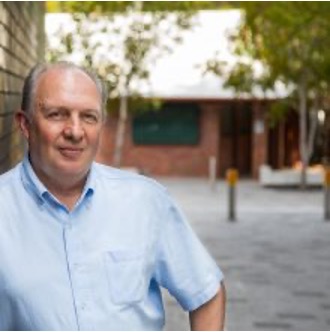 |
Prof. Dmitri Golberg, Centre for Materials Science and School of Chemistry and Physics, Queensland University of Technology |
| The scope of Dmitri’s interest ranges from carbon, boron nitride and dichalcogenide nanotubes and nanosheets, to various prospective 0D, 1D and 2D phases, like metallic nanoparticles and nanowires, MXenes, Borophenes etc. He is specifically targeting the implementation of advanced in situ and operando TEM methods for solving emerging technological problems with a strong focus on new “Green Energy” solutions and technologies. |
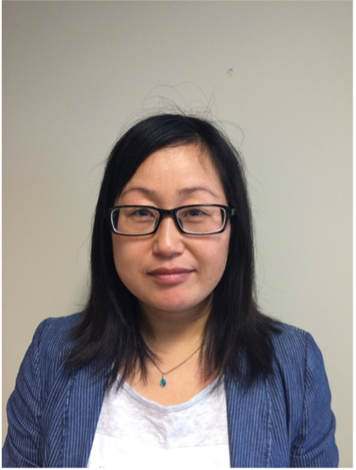 |
Prof. Zaiping Guo, School of Chemical Engineering & Advanced Materials, The University of Adelaide |
| Zaiping Guo is an Australian Laureate Fellow at School of Chemical Engineering & Advanced Materials, The University of Adelaide. She is also an Associate Editor for ACS Appl. Mater. Interfaces, a world-renowned journal in materials science. Her research focuses on the design and application of electrode materials and electrolyte for energy storage and conversion, including rechargeable batteries, hydrogen storage, and fuel cells. |
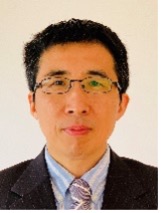 |
Prof. Lianzhou Wang, Nanomaterial Centre, School of Chemical Engineering, and Australian Institute for Bioengineering and Nanotechnology, The University of Queensland |
| Lianzhou Wang is Professor and ARC Laureate Fellow in School of Chemical Engineering, Director of Nanomaterials Centre, and Senior Group Leader of Australian Institute for Bioengineering and Nanotechnology, the University of Queensland. His research focuses on the design and application of functional semiconductor nanomaterials for renewable energy conversion/storage applications including new photocatalytsts for solar hydrogen production, low-cost solar cells and rechargeable batteries. |
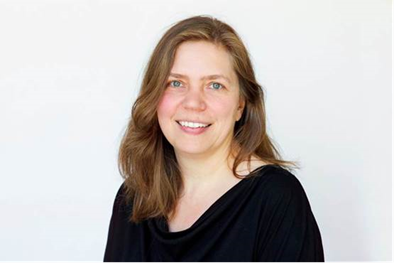 |
Prof. Martina Stenzel, School of Chemistry, University of New South Wales |
| Martina Stenzel is now a Scientia Professor in the school of chemistry as well as an ARC Laureate Fellow. Her research interest is focused on the synthesis of functional nanoparticles for drug delivery applications. Martina Stenzel published more than 350 peer reviewed papers mainly on polymer and nanoparticle design. |
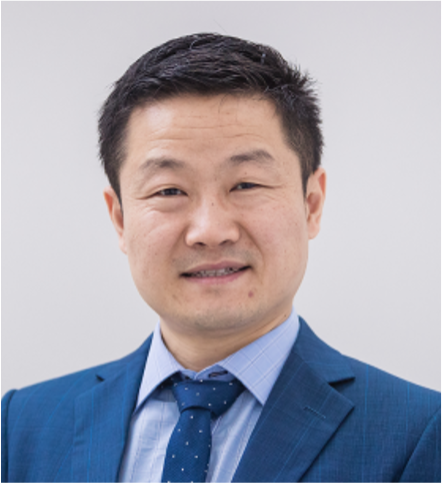 |
Prof. Dayong Jin, Institute for Biomedical Materials and Devices, the University of Technology Sydney (UTS), Australia; Southern University of Science and Technology (SUStech), China |
| Professor Dayong Jin’s research has been in the physical, engineering, and interdisciplinary sciences, with expertise covering biomedical optics, nanotechnology, microscopy, diagnostics and microfluidics devices. |
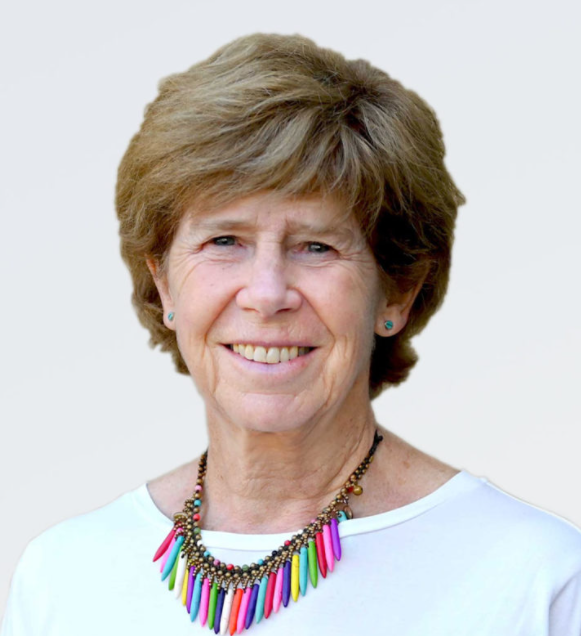 |
Prof. Jennifer Gamble, The University of Sydney |
| Professor Jennifer Gamble holds the inaugural, Wenkart Chair of the Endothelium, at the Centenary Institute and the University of Sydney. Her interests lie in understanding endothelial cell function particularly in the area of inflammation, and how dysfunction can influence disease. Her initial publication in this area established the endothelium as a dynamic organ, central to the control of inflammatory processes. |
|
Conference Coordinator: (Dr. Fan Jia, Managing Editor, Exploration, Wiley)
Conference Program:
|
|
